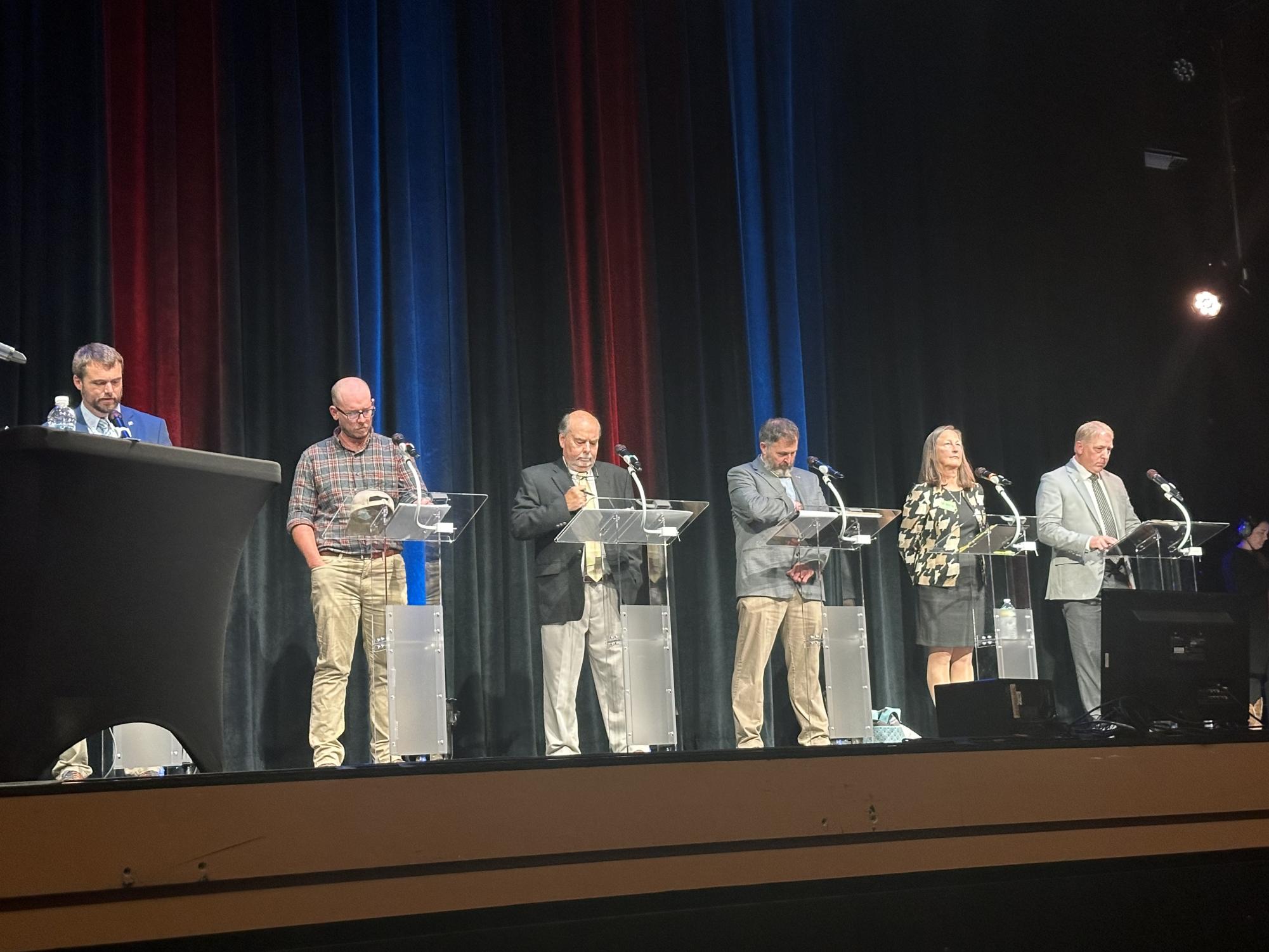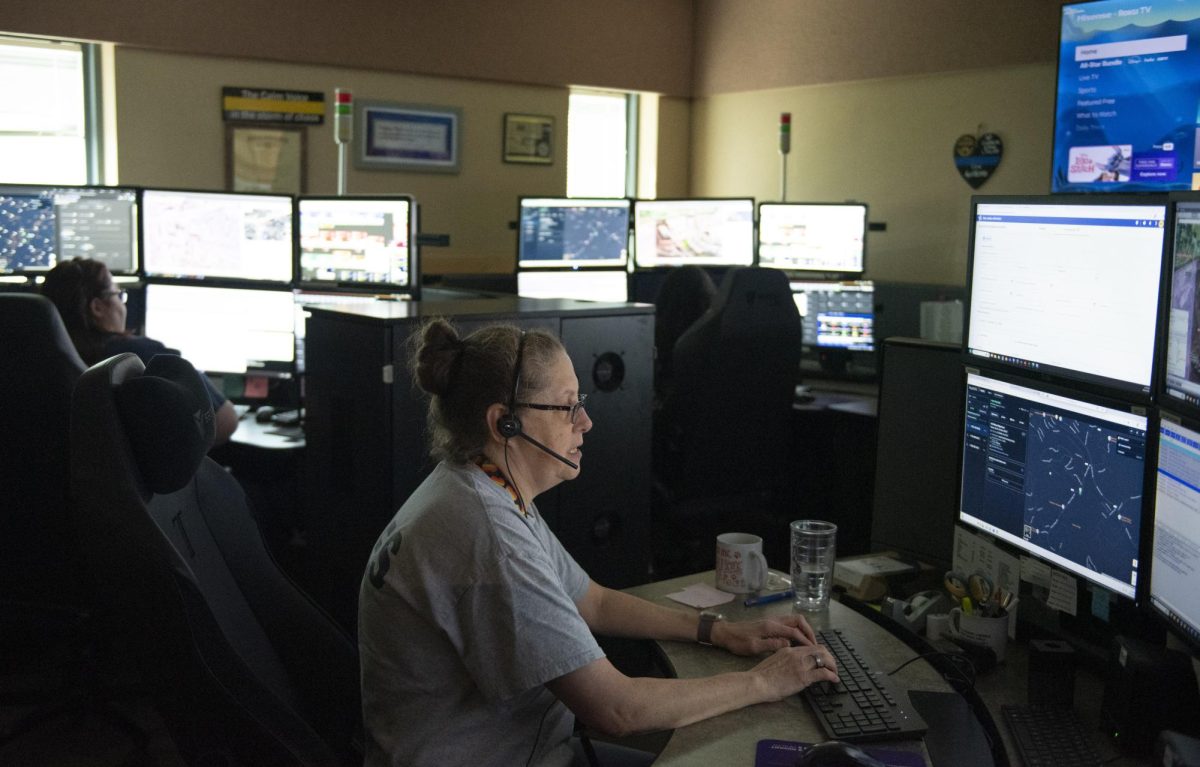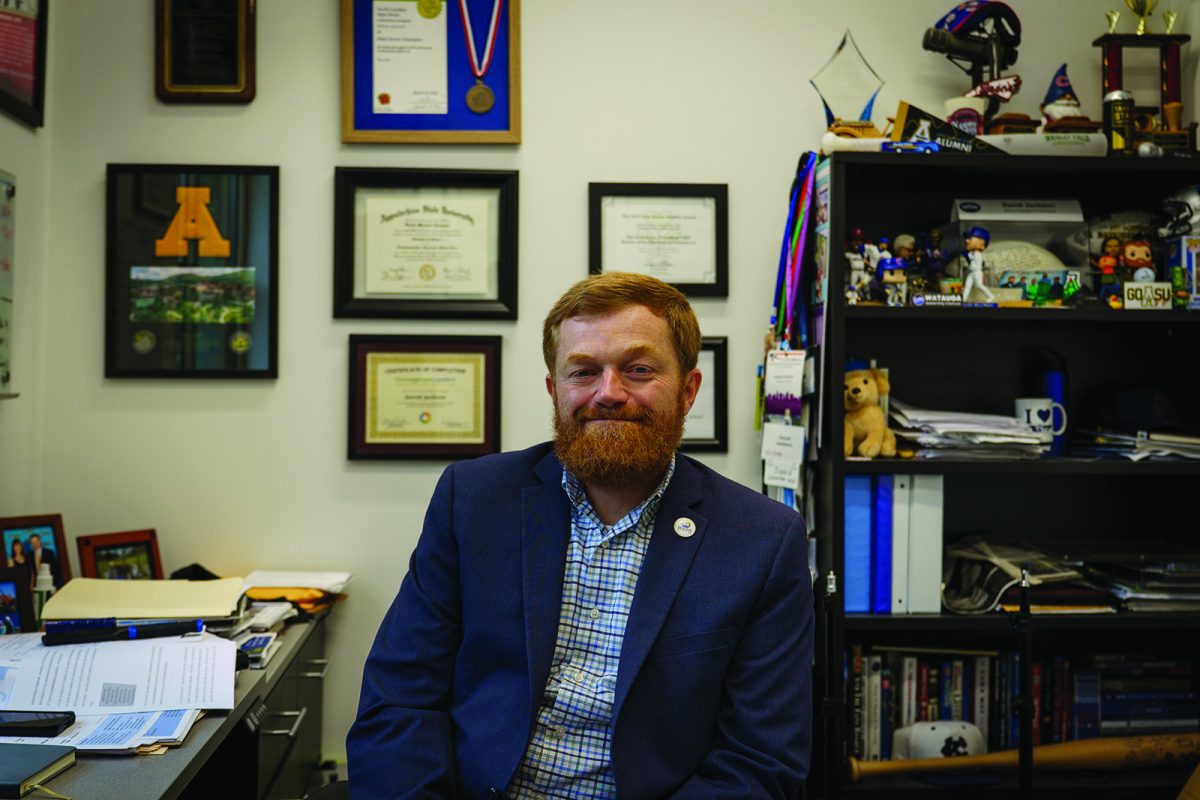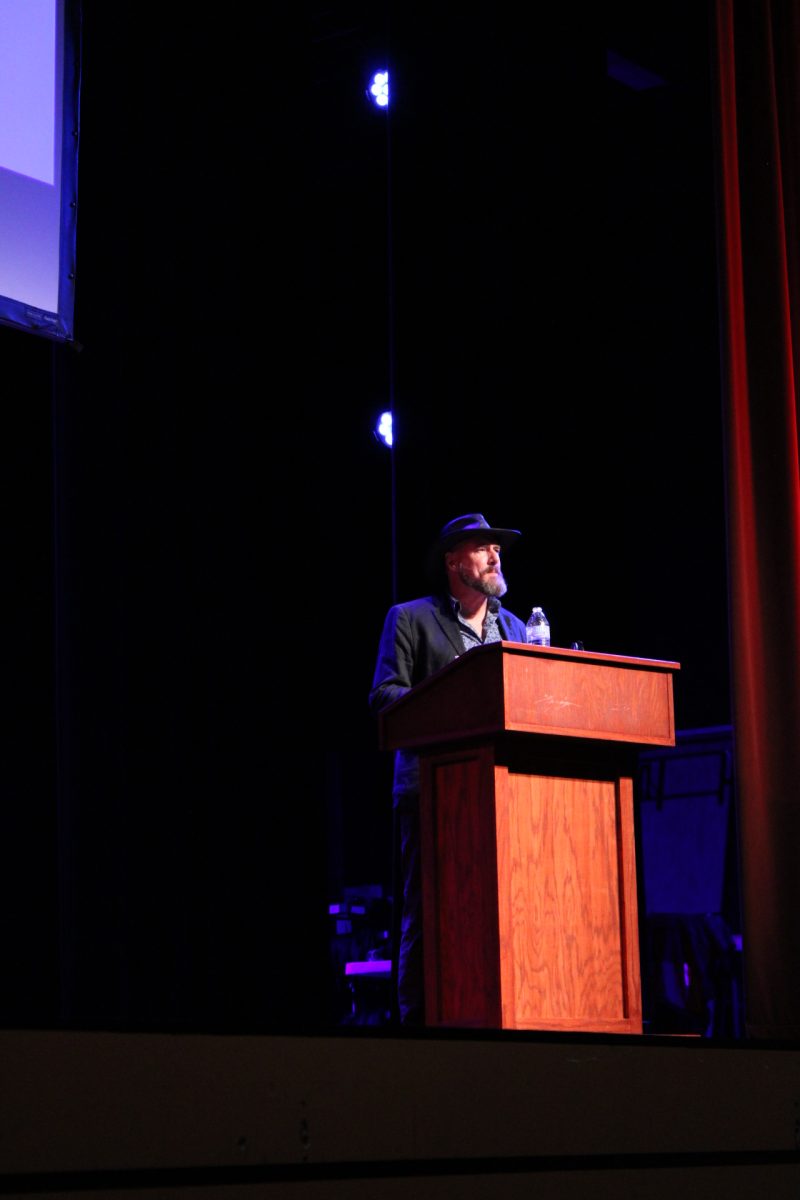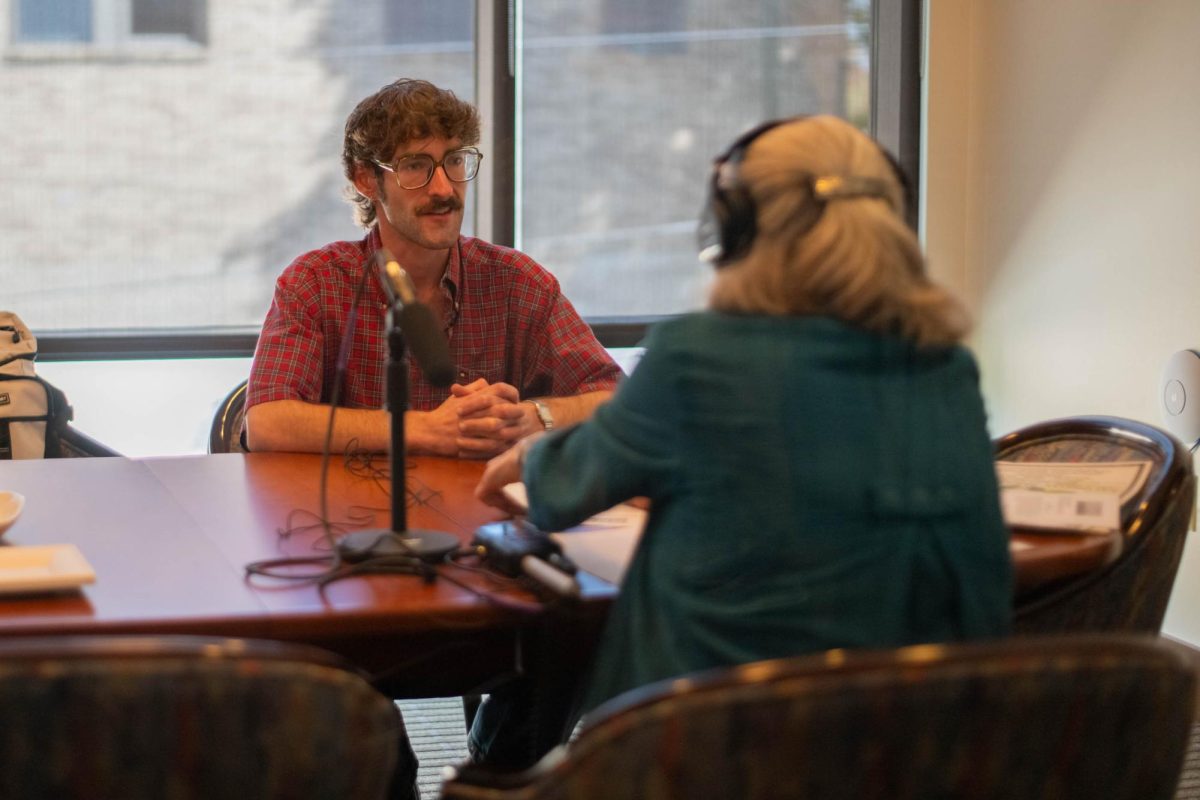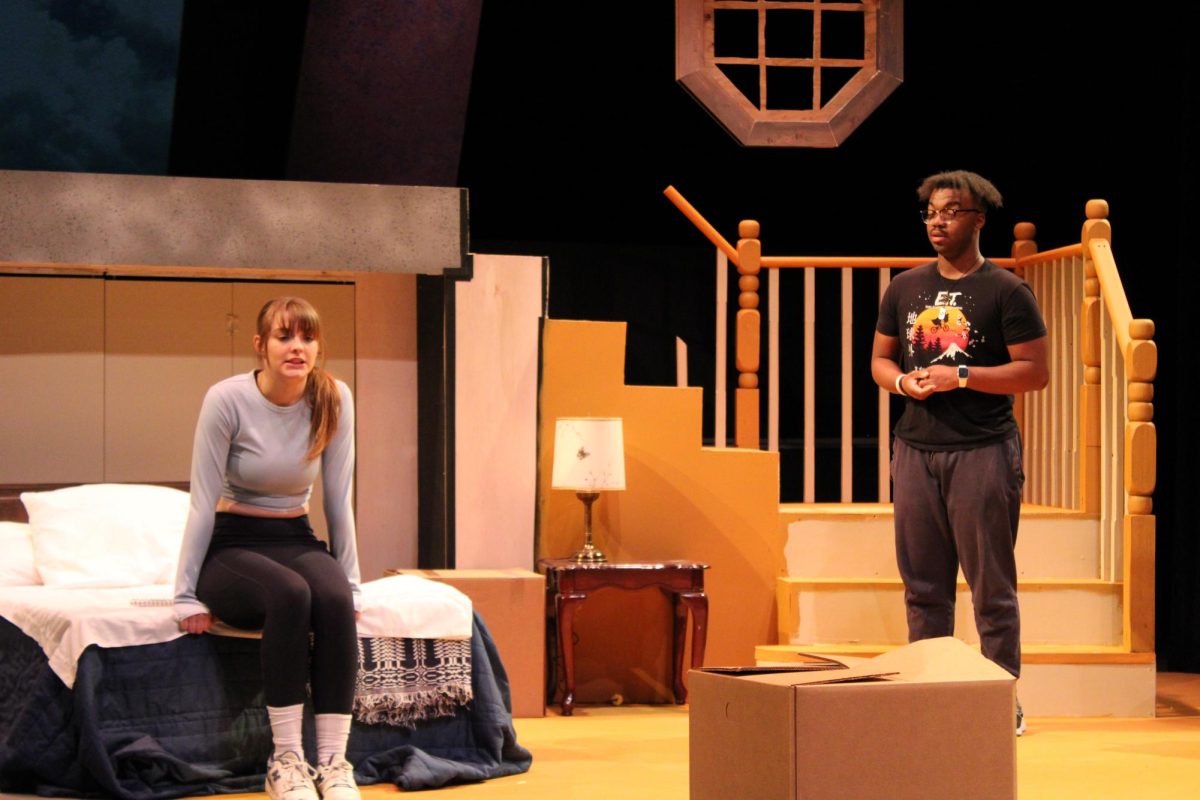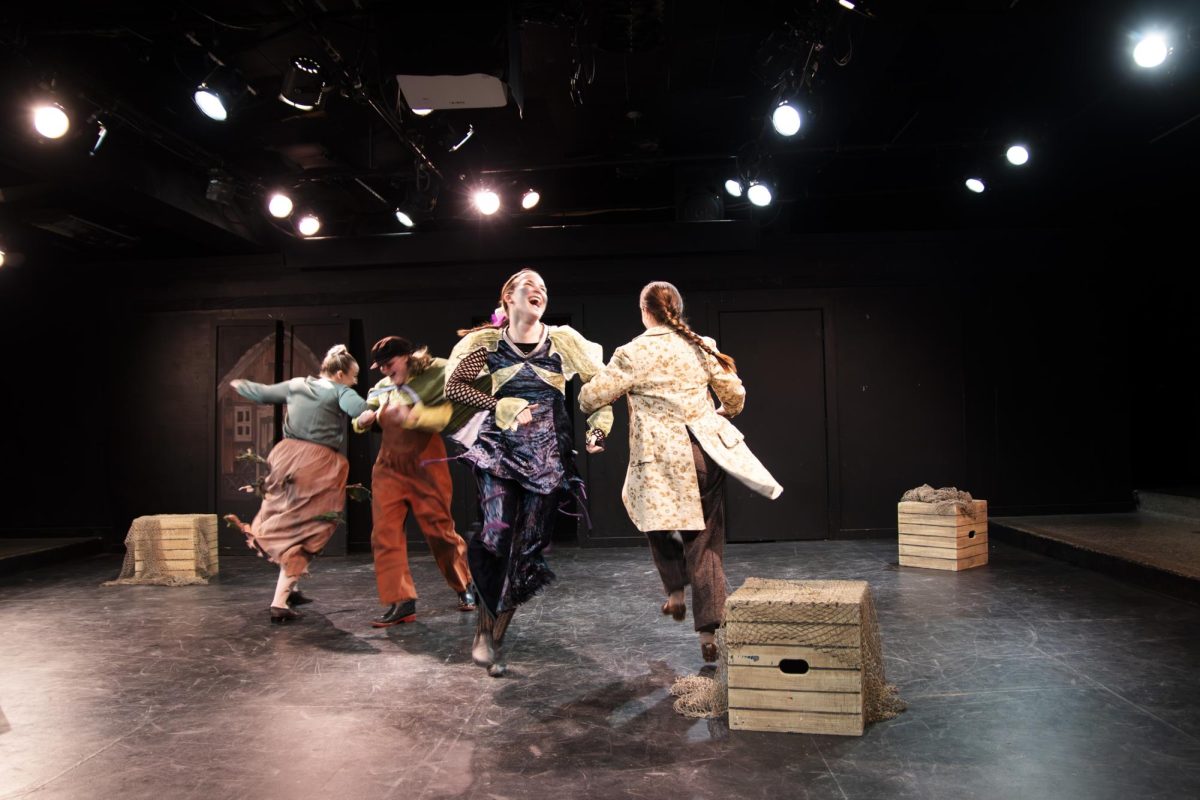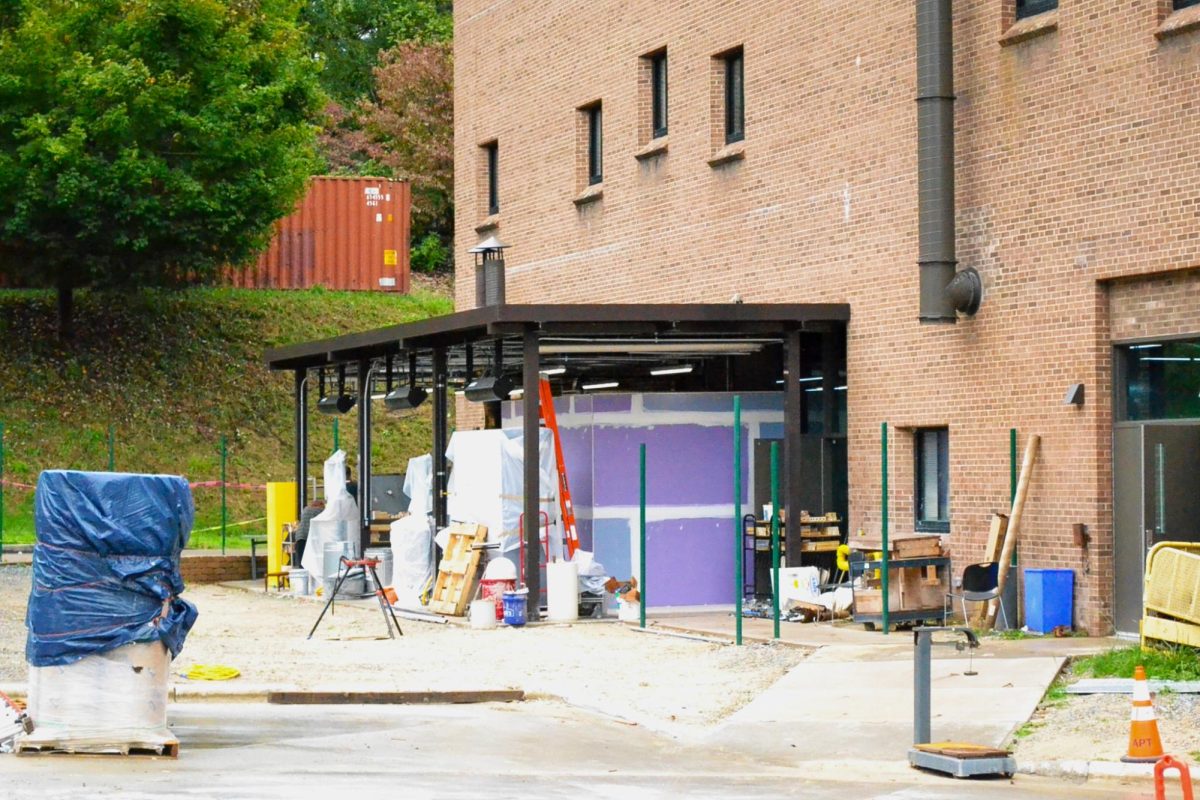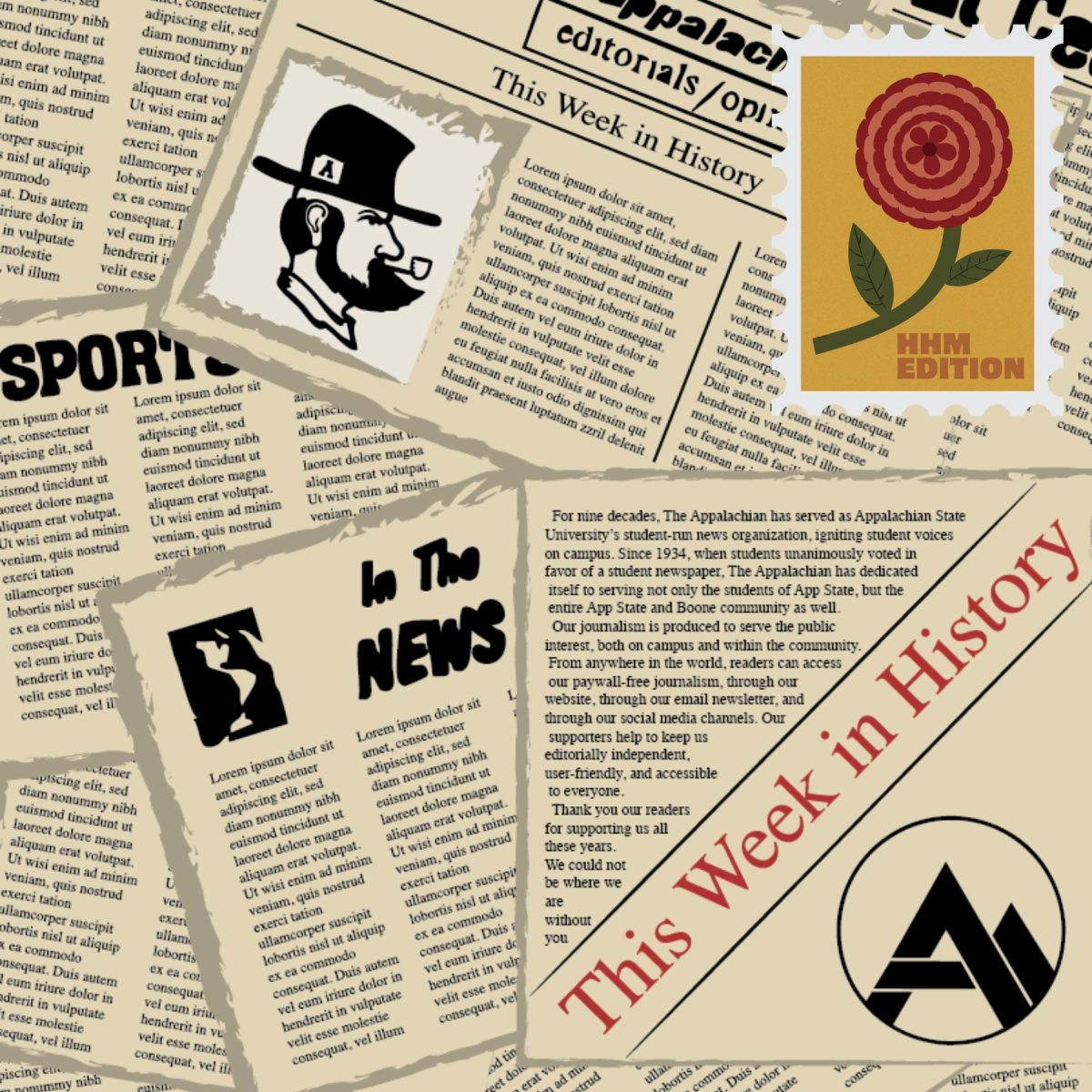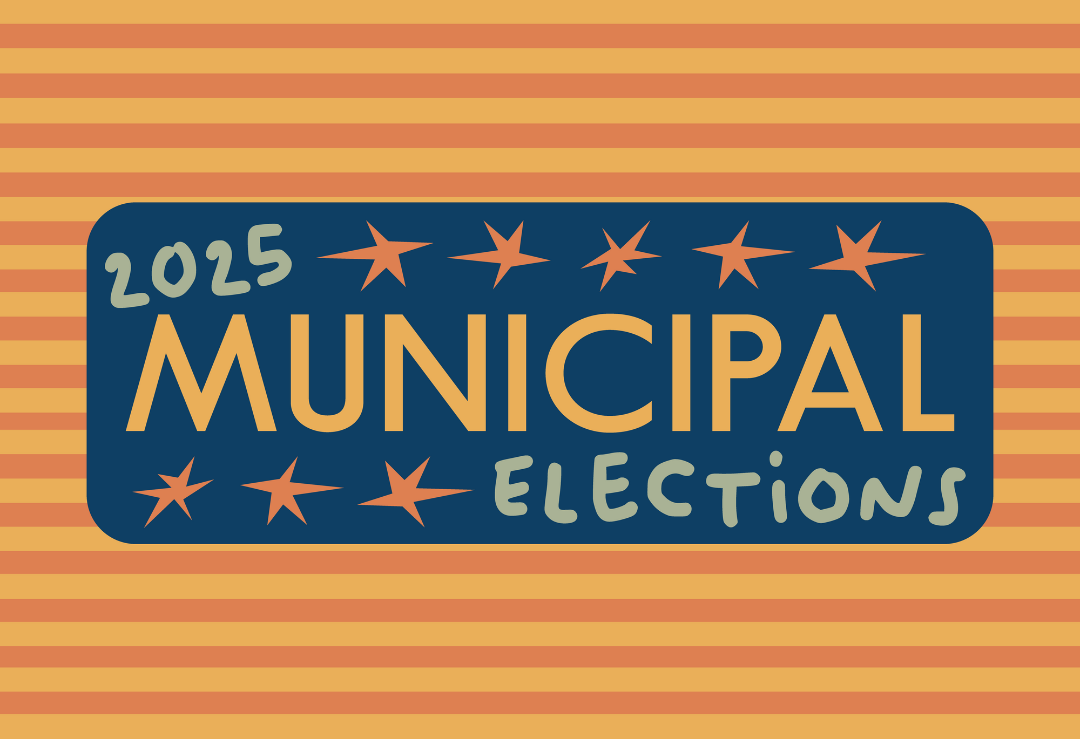Election Day is Nov. 5. Candidates representing Watauga County are running in national, state and local races. The Appalachian curated responses to questions on policy positions of candidates in the various offices.
The questions and responses below are curated from the Boone and Blowing Rock chambers of commerce “Meet the Candidates” forum held in the Appalachian Theatre of the High Country on Monday.
Candidates for the U.S. House of Representatives, North Carolina House of Representatives, Watauga County Board of Education and the Watauga County Board of Commissioners were questioned by a panel of moderators and given time for opening and closing statements.
Three seats are available on the Watauga County Board of Commissioners this year. These races are divided into districts where only voters living in a certain district are eligible to vote for their candidate.
The following questions were asked to Braxton Eggers, Jon Council, Charlie Wallin, Ronnie Marsh, Sue Sweeting and Todd Castle during the Meet the Candidates forum at the Appalachian Theater of the High Country on Monday The moderators gave candidates two minutes each for opening and closing statements and 90 seconds each for responses to questions.
The Appalachian compiled the candidates’ responses to various questions. The questions listed and the candidates responses are shortened for brevity.
How will you work to ensure projects across districts are seen as complementary not competitive?
Braxton Eggers:
Eggers stressed the importance of helping everyone in the county he grew up in. He referred to every town in the county as his “neighbors” and reassured the audience that districts mean very little to him.
“Watauga county is the best of humanity,” Eggers said. “When a child gets sick, when somebody’s hurting, there’s a fundraiser for that kid. When somebody gets cancer or when there’s a tragedy in law enforcement, this community wraps around itself. We’re a family.”
Jon Council:
Council highlighted that he lives in Watauga County’s third district and said he knows about the problems people in his district face. He said the knowledge of his area will not prevent him from serving Watauga County as a whole.
“My job is not to promote those things over the needs of other districts in the county but to advocate for those people that live out there by me in Matney, Seven Devils, Foscoe, Bethel, Beaver Dam and live out in these far reaching areas of the county that may be getting less attention,” Council said.
Charlie Wallin:
Wallin said he meets with voters from the different districts in Watauga County and wants to hear from them about their needs.
“You’re still a citizen within Watauga County and I’m still elected to represent you and I want to do what’s right and I want to hear what you have to say,” Wallin said.
Ronnie Marsh:
Marsh said the new redistricting measure is designed to create more fair representation on the county commission. He also highlighted that the commission will seek to represent the whole county in its decisions.
Sue Sweeting:
Sweeting said her concern was that 22,000 voters in the county do not vote for who their commissioners are.
“I think that all voters should have a voice on who’s going to be their commissioner,” she said.
Todd Castle:
Castle addressed the new redistricting measure for the county commissioners race. He said the redistricting happened to address concerns by “the citizenry.”
“The district voting was not set up to disenfranchise anyone,” Castle said. “It was actually set up to level the playing field for those who felt disenfranchised.”
What did you learn from the Watauga County child care study and which of the recommendations from the study do you support the most?
Braxton Eggers:
Eggers sympathized with issues with child care, having a four-year-old child himself. He suggested that the county could use the real estate tax revenue from the recent sale of the Cottages of Boone.
“The county can make a commitment with that. I know how hard this is on my side of things with having small children,” Eggers said.
Jon Council:
Council mentioned using tax income from short-term rentals in the county to fund services for people who live in the county full time.
“I don’t want to see these funds just support the tourism industry,” Council said. “We need to make sure that the people that live and work here can continue to do so.”
Charlie Wallin:
Wallin said low wages for child care workers in Watauga County stood out the most to him.
“We have got to figure out how we can help make sure that our teachers are getting what they need and being able to make a living wage so they can take care of these young folks,” Wallin said.
Ronnie Marsh:
Marsh said he had not reviewed the study. He said he supports an increase in childcare centers and aid already established centers.
“We will support and we will come alongside individuals and these centers to help assist with the growth and stabilization of childcare problems within the county at this time,” Marsh said.
Sue Sweeting:
Sweeting said the lack of childcare has prevented people from getting a job.
“Maybe it is time for businesses to step up,” she said.
She said she wants to work toward providing funding for daycares to get people back in the workforce.
Todd Castle:
Castle said he wants to increase pay for teachers and child care workers in Watauga County.
“We’ve got to get a hold of some funding sources to pay these child care workers a living wage,” Castle said.
How would you ensure there is adequate funding for ensuring school needs are met?
Braxton Eggers:
Eggers has faith that the county can provide services such as electrical and air conditioning repairs as well as funding the new school in Valle Crucis responsibly without raising taxes.
“I think we addressed the problems with our budget or at least put a dent into it,” Eggers said. “I’m not saying it’s perfect but it’s something that we can work with looking forward. We can do the Parkway School without tax increases, which I don’t want to do.”
Jon Council:
Council said he wants to expand the presence of social workers and affordable lunch programs in Watauga County Schools.
“Once again we need to really utilize tax dollars that we’re getting from tourists and people visiting from outside the area,” Council said. “We don’t want to put that cost burden on people who are already hurting here in the county.”
Charlie Wallin:
Wallin said he wants to focus on improvements and upcoming renovation projects to schools throughout the county.
“It’s being forward thinking and continuing to be forward thinking is how we’re going to be able to prioritize,” Wallin said.
Ronnie Marsh:
Marsh said he supports expansion of renovations on certain schools such as Parkway Elementary School. He also said he supports implementing air conditioning in the school buildings.
“There is no reason ever in this county for teachers or students to sit in an 80 degree classroom or higher, it cannot happen in these schools,” Marsh said.
Sue Sweeting:
Sweeting said she believes the county commissioners are observant of the needs of the school and school supplements for teachers should be increased.
She said, “Hardin Park Elementary has had their roof replaced three to four times,” and there needs to be a plan before money is given. She said she trusts the schools to know their needs.
“I would support whatever projects they recommend,” she said.
Todd Castle:
Castle said three things that are consistently brought up to him by school board members are “safety, teacher retention and recruitment and supplement post-pandemic recovery.” Castle mentioned the recent decision to increase teacher supplements in Watauga County Schools.
“I think they are very appreciative of what we are doing,” Castle said. “Anything that we can do to support the school system because we do have the best school system in the state.”
What do you feel are priorities when it comes to the development of housing and how would you intend to support these projects if elected?
Braxton Eggers:
Eggers agreed with Castle’s statement that taxpayer money should not be used to address housing issues. He also pointed out that App State has grown significantly in recent years, and since more students need to find off-campus housing, the housing shortage spills over into the Town of Boone. He urged the town to communicate with university administrators to fix this.
Jon Council:
Council said he would like to see Watauga County implement diverting tourism dollars to affordable housing in the county. He said he wants to see local politicians do something about housing prices in Watauga County.
Charlie Wallin:
Wallin said leaders in the county need to look into getting grants for housing development in the county and investing in partnerships with various organizations including the State Employees Credit Union or the Watauga County Housing Council.
“Everyone up here keeps talking about ‘We got a problem’ but there’s some of us out there actually working on this problem trying to find real solutions to the housing problem,” Wallin said.
Ronnie Marsh:
Marsh recognized that land in the county is expensive and referenced conversations with constituents in Watauga County who live outside the county and commute to work due to housing prices. He said the commission needs to collaborate with state and university officials to aid housing issues.
“We’re going to have to think outside the box, deal with our state representatives,” Marsh said. “To try to combat this problem and figure this out as far as affordable housing.”
Sue Sweeting:
Sweeting said one problem they are having is the amount of single family homes in Watauga County are being used as AirBnBs and short-term homes. She said condos and multi-use complexes are the reason single-family homes are not being built.
“We’re going to have to look at ways to get more single-family homes,” she said.
She noted a federal grant that would repurpose old buildings, did not specify the name of the grant, and leasing-to-locals which will give subsidy to someone who is doing VRBO or AirBnB and have them turn it into a single-family home.
Todd Castle:
Castle said he supports increasing single-family living spaces in the county but does not want to use taxpayer dollars to pay for it.
“It’s going to be expensive,” Castle said. “There are funds available, there are grants available and if that’s the case then I’m all for it,” Castle said.
What actions will you take to maintain and sustain partnerships with municipalities and organizations in the county?
Braxton Eggers:
Eggers was excited at the prospect of new leadership in App State, UNC Health, and Watauga County School. He stated that communicating is “as easy as picking up the phone.” He was especially interested in reaching out to the UNC Health system to improve the relationship between healthcare and citizens in the county.
“We need to have open relationships with UNC Health especially,” Eggers said. “We need to be sitting down with them. I think there are some struggles and some realistic things people in this community have questions about.”
Jon Council:
Council said increasing communication between App State, the Boone Town Council and the county will help to alleviate some of the issues in the area.
“We can get as many voices to the table as we can, as many normal everyday folks to the table as we can and we can really figure out how to tackle this stuff,” Council said.
Charlie Wallin:
Wallin highlighted his frequent meetings with town council members, municipality leaders and university leaders. He said he often asks what leaders need and brings it back to the board of commissioners.
Ronnie Marsh:
Marsh called on organizations like UNC Health, App State and different town governments in the county to renew partnerships.
“We finally have to be Watauga County,” Marsh said. “We finally have to deal with all these individuals and come together.”
Sue Sweeting:
Sweeting said the county and App State should work together to alleviate issues. She agreed with other panelists that the county needs to communicate with county commissioners to solve problems.
“We all sat down at the table with the other towns and it was wonderful,” she said. “We knew what was going on in the county.”
Sweeting said commissioners should have more conversations to better know what is going on through the county and collaborate together.
Todd Castle:
Castle mentioned previous development disagreements between the commission and the town of Boone as well as parking and transportation issues in the county. Castle said the commission needs to hold App State accountable for its contributions to issues in the county.
“I’m hoping that the new chancellor will sit down at the table with all the other officials in the county and work together,” Castle said.
How do you intend to advocate for the healthcare needs of our community, what specific examples can you share?
Braxton Eggers:
Eggers explained the importance of mental health and that the county and state need to be equipped with more diverse resources.
“Mental health doesn’t just affect the individual,” Eggers said. “It affects the family, it affects the friends and it affects society. What we’re seeing right now is there’s not enough mental health help in the state. So now that’s coming back onto the counties.”
Jon Council:
Council focused his statement on the link between healthcare in Watauga County and the environment.
“I think we need to make sure that how we are developing the county and how we’re taking care of our low income folks is at the forefront of how we go about tackling the healthcare services here,” Council said.
Charlie Wallin:
Wallin highlighted his past time as county commissioner and the challenges he sees with mental health care and child care in Watauga County.
“Reaching out and working with all these folks has been instrumental for me,” Wallin said.
Ronnie Marsh:
Marsh emphasized having discussions with healthcare providers across the county and in surrounding counties to help find solutions to healthcare problems in Watauga County.
Sue Sweeting:
Sweeting believes they need to talk with the state legislature about passing the safe act, which will allow more jobs for nurses to meet the county’s needs.
She said the sheriff requested a social worker in order to help the issues that can cause addiction. “I commend our officers for that,” she said.
Todd Castle:
Castle shared a recent anecdote about his father feeling sick and struggling to get an appointment with a local health care provider.
“I think healthcare in general is just turning into a monster where you just become another number,” Castle said. “And that is not the way we need to be treating our citizens in this county.”




